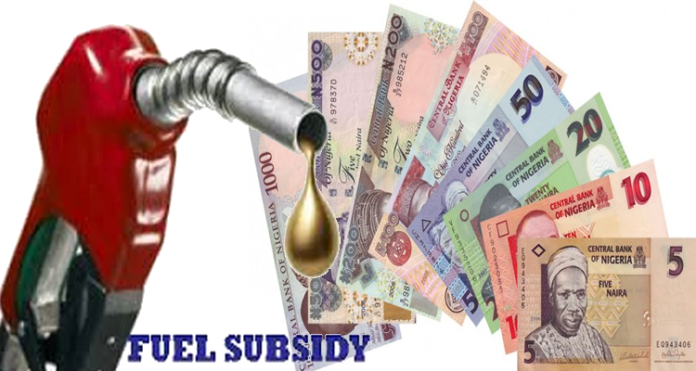- Your cart is empty
- Continue Shopping

Fuel Subsidy: NNPC Discloses Game-Changing Updates
The Nigerian National Petroleum Company Limited has disclosed that it will reconcile fuel subsidy deductions with the Federal Government after saying that no fuel subsidy payments had been issued to marketers since January 2016.
This was announced by the corporation on Tuesday, July 4, when it provided a before and after fuel subsidy factsheet via its official Twitter account.
Two days after President Bola Ahmed Tinubu declared the end of fuel subsidies in the country, Mele Kyari, Group Chief Executive Officer of the NNPC Limited, stated that the Federal Government owed the company more than $6 billion (N2.8 trillion).
This is the precise amount paid by the NNPCL to keep gasoline inexpensive.
Meanwhile, the World Bank highlighted in its Nigeria Development Update report that the recent decision to withdraw the fuel subsidy is a critical first step towards restoring macroeconomic stability, generating budgetary flexibility, and enhancing development prospects.
According to the World Bank analysis, removing the subsidy will improve Nigeria’s budgetary condition.
This is due to the fact that it lays the groundwork for a more robust, faster-growing economy.
NNPCL published multiple statements, outlining improvements in a variety of areas.
To begin with, NNPC Limited no longer distributes petrol subsidies to marketers, since they are now compelled to pay the market-determined cost price for petrol. Previously, marketers purchased fuel at a discount from its true cost.
Concerning the financial load, the federation has been steadily accruing debt as a result of subsidy payments.
The crisis, however, has finally come to an end, ushering in a new era of optimism and opportunity.
In terms of settlements, NNPC Limited used to reimburse suppliers either in cash or by providing similar crude oil volumes.
This practise of crude oil swap arrangements, however, will be phased away.
Furthermore, in terms of supply, suppliers used to import petroleum products on commercial terms for NNPC Limited, based on their credit capabilities.
NNPC Limited, on the other hand, would no longer be the exclusive importer of petroleum products, signalling a change in the importation process.
Mele Kyari, the chairman of the NNPC, earlier claimed that the fuel subsidy scheme largely benefitted a tiny percentage of the Nigerian populace, estimated to be 10% to 15%.
This system mostly favoured the wealthy or upper middle class, who had a diverse range of cars not intended for public mobility.
Source: Allnews Nigeria
